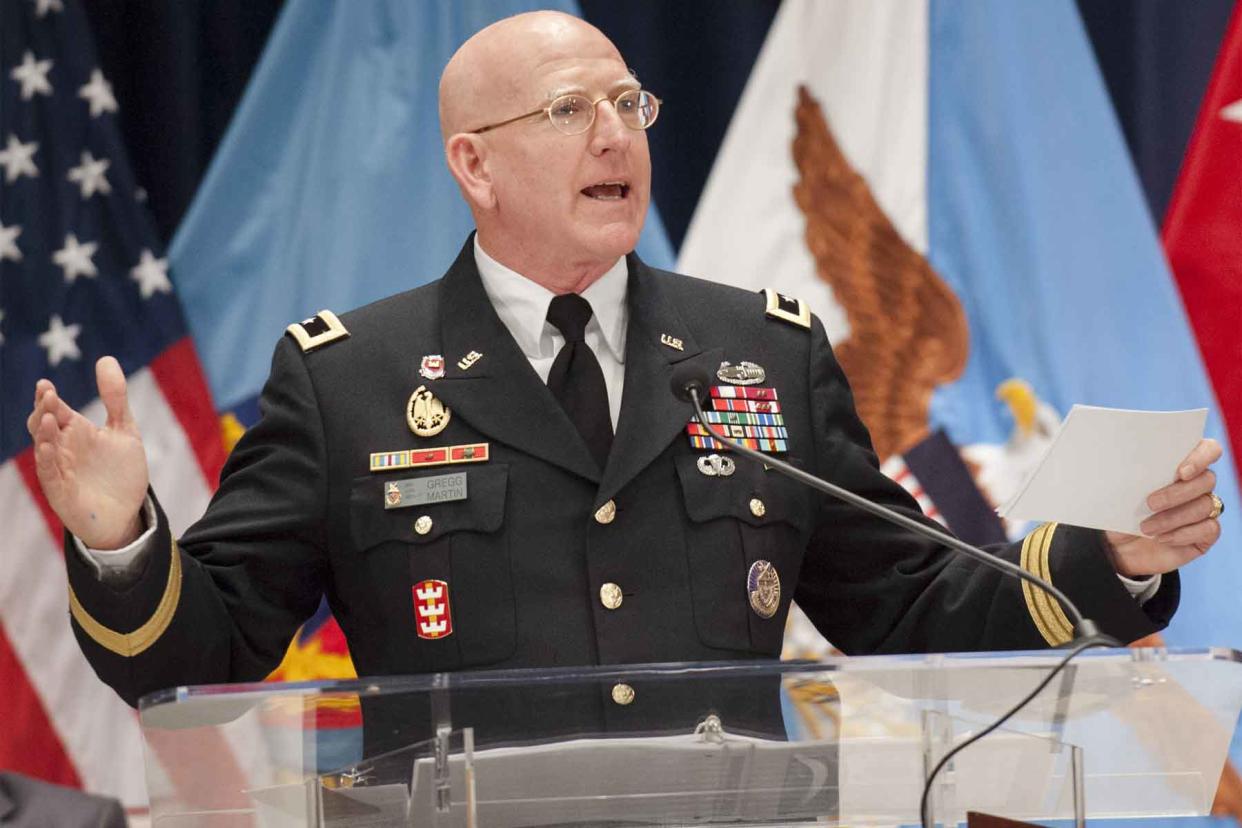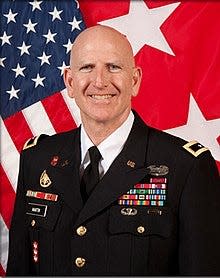Gen. Martin: After resigning command, bipolar battle entered hopelessness, depression

Support local journalism. A digital subscription is incredibly affordable and makes you the most informed person around. Click here and subscribe today.
This is the fourth of a six-part series written by retired 2-star general Gregg Martin.
After resigning from command of National Defense University, I spiraled, then crashed into a depression that was increasingly characterized by diminished energy, hopelessness, anxiety and psychosis (mainly delusions.)
It was at this point, in Nov. 2014, that I was diagnosed with bipolar disorder, Type I.
My depression and psychosis worsened steadily through my retirement from the Army in May 2015 and continued through a move to New Hampshire in June 2015.
In March 2016, I was admitted to the Psychiatric Inpatient Ward at the VA Hospital in White River Junction, Vermont.
Gen. Martin's previous columns:
Part 3:How bipolar disorder helped decorated military leader (Until it didn't)
Part 2:General recalls day chairman of the Joint Chiefs of Staff made him retire
Part 1:Bipolar disorder diagnosis ended a Major General's decorated career but saved his life

In hindsight, in the years following my 2003 Iraq War experience, I had experienced periods of depression, though none were crippling enough to prevent me from doing my assigned duties.
I powered through, with my own form of self-medication — hyper-religiosity and positive thinking, intense exercise, and off-duty, non-deployed alcohol consumption — and gradually regained my interest, drive and motivation in order to achieve and succeed.
The structure of military life helped me survive until the depression naturally resolved itself on its own.
But now I was severely crippled by depression, and terrified by the delusion that I had committed fraud against the U.S. government.
I lived in perpetual fear that I would be arrested, convicted and jailed, then tortured and murdered in prison.
Or I would imagine being stripped of my achievements and retirement, retroactively demoted and losing my pension and medical benefits — leaving my wife in poverty and me homeless and dying on the streets. I believed that my closest colleagues were conspiring against me.
I was living in a state of madness.
Although it had worked for years, my previously successful formula for self-medication no longer helped.
My depression and delusions were so powerful that eventually, I did not even have the energy or will to try the self-medication that had pulled me through previously.
These delusions were totally fabricated by my own damaged brain, but I believed them to be completely true.
I was absolutely convinced that the delusions were real.
I was certain my condition would never improve and I would be better off dead — dying before “they” could arrest me.
My psychotic mind was filled with thoughts of death and vivid ideas of how I quickly and painlessly could be killed.
I later learned in the VA that these thoughts are called “passive suicidal ideations,” but they were anything but "passive" to me.
By the grace of God, my suicidal ideations remained passive and never became active.
I never wanted to take my own life — which so many people with bipolar and other brain maladies do — but could not see any other viable alternative to dying, which I believed would be best for my wife and family.
And the sooner I died, the better, before “they” came to arrest me. Death was my ticket out of “bipolar hell.”
One of my sons insists that a major difference between my own case of bipolar disorder and many millions of others’ cases is that I was fortunate enough to pull out of bipolar hell and launch on my road to recovery.
Indeed, I was alive and on the mend, with my marriage and family intact, a pension, medical care, no addictions and no criminal record.
While I understand that I worked hard to earn these benefits, millions of Americans are nowhere near as fortunate as I was. More important is the fact that even with these benefits, my recovery has been ongoing for years, and for two of those years I was largely incapacitated and virtually on life support.
Recovery is a never-ending, life-long process, a “forever war.”
Gregg Martin is an Army combat veteran, retired 2-star general, and bipolar survivor and thriver. Formerly president of National Defense University, he is a qualified Airborne-Ranger-Engineer and graduate of West Point and MIT. He lives in Cocoa Beach.
"These views are the author’s, and not necessarily the official position of DOD or the U.S. government, or of the USA TODAY Network.
This article originally appeared on Florida Today: Gen. Gregg Martin details depression forged by bipolar disorder

